Choosing the right battery system for your vehicle or off-grid system is essential to ensure the safe operation of the appliances. One important thing you need to remember is the battery voltage: 12V vs 24V. While 12V is more suited for small and medium electrical systems, 24V is designed for larger electrical setups.
Jackery Solar Generators are powerful, portable solar-powered generators that charge most household or outdoor appliances. They feature LiFePO4 or NMC batteries that can supply safe power to appliances such as ACs, refrigerators, lights, microwaves, etc., for hours. These emergency battery backups can be used when there's a power outage in your area, or you wish to enjoy outdoor adventures with power.
Key Takeaways
- Voltage or volts is the electrical potential difference between the positive and negative battery terminals.
- 12V battery systems are more suitable for small—to medium-sized electrical systems. On the other hand, 24V batteries are preferred for large electrical systems.
- 12V batteries take up less space, are more affordable, and are compatible with more vehicles. On the contrary, 24V batteries are ideal for high-power setups and involve less wiring costs.
- Jackery Solar Generators can charge most home, RV, or camper appliances, ensuring you never have to worry about blackouts or finding electrical outlets.
What Are 12V and 24V Battery Systems?
Most RVs, cars, and boats use a 12V electrical system. However, there are certain exceptions. Understanding the choice between a 12V and 24V battery system will depend on what volts or voltage is. Voltage is the electric pressure it takes to push the electrical current. Let's briefly explain what 12V and 24V mean:
12V indicates that the battery can supply 12 volts under a nominal load. Most cars and vehicles use 12V batteries because their electrical components, such as lighting, starter, and ignition systems, can operate on 12 volts. The 12-volt battery rating is the nominal voltage, which might be higher or lower depending on the loads and state of charge.
A 24V system can produce 24V under nominal load. You can purchase a 24V battery or connect two 12V batteries in series to build a 24V system. These batteries are less common than their 12V counterparts and are relatively expensive. However, a 24V battery takes less space than running two 12V batteries in series.

Pros & Cons of 12V and 24V Battery Systems
Both 12V and 24V battery systems come with their own pros and cons, and the ultimate choice will depend on your needs. In this section, we are going to explore the pros and cons of 12V vs 24V solar system type so you can make an informed decision:
Pros of 12V Battery
12V batteries are the most common type of battery when used with DC power systems. If your power requirements are 3000W or below, you should opt for a 12V system that can meet your needs.
Takes up Less Space: 12V batteries are smaller and take less space. They are lighter and much smaller than a 24V battery. Since they are lighter, 12V batteries are designed to reduce fuel consumption and improve performance.
Compatible With Vehicles: 12V batteries are compatible with different vehicles. Most vehicles' electricity systems and components are designed to be compatible with a 12V battery, reducing the risk of any issues.
Ideal for Low Power Setups: A 12V battery is suitable for lower power setups below 3000W. It can charge typical RV appliances, such as refrigerators and lighting systems.
More Affordable: 12V batteries are generally much more affordable than 24V batteries. This is because 12V batteries require less power and are much easier to come by than 24V batteries.
Cons of 12V Battery
12V batteries need massive wires while pulling large loads because the amps are higher. You will also need big cables for high-power appliances such as inverters, which can lead to higher expenses. In addition, 12V batteries require two times the amps at any given power draw and are less efficient due to resistive loads.
Pros of 24V Battery
A 24V battery provides around 24 volts of power and can even be created by connecting two 12V batteries in series. As a general rule of thumb, a 24V battery is likely to be more beneficial for greater power needs:
Ideal for High-Power Setups: While 12V batteries are designed for setups requiring less power, 24V batteries are ideal for vehicles requiring more power or high-power setups.
Reduce Wiring Costs: 24V batteries can greatly reduce overall wiring costs. They require less wiring and cable and have far cheaper wiring costs. They are also more efficient and provide fewer reactive losses.
Ideal for Solar: A 24V battery is more beneficial for solar systems than 12V. With a 24V battery, you need half the amount of solar charge controllers and operate more efficiently.
Cons of 24V Battery
When you use a 24V system with 12V appliances, you'll also need a 24V to 12V DC-DC converter to reduce the voltage to 12V. While the converter works well, it is an extra cost and incurs a 4% energy loss.
12V vs. 24V Battery Systems
When selecting between 12V and 24V battery systems, many factors must be considered. The primary considerations include power requirements, space considerations, compatibility, heat generation and dissipation, and specific applications.
Power Requirements
Choosing between 12V and 24V will depend on your specific needs and usage patterns. To estimate your daily power consumption, list the appliances you plan to use and note the power consumption of each device.
Then, estimate the number of hours you will use per day and calculate the daily energy consumption for each device. Lastly, you can sum up the daily energy consumption of the devices to get the total power needed.
Generally, a 12V battery system is sufficient for appliances with modest power needs. However, if you plan to build a much larger electrical system, a 24V system can be more beneficial due to its low current requirements and reduced wiring costs.
Space Considerations
12V batteries are smaller and take up less space than their 24V counterparts. If you have a limited space for the battery system or you're installing one in a campervan or boat, you may go ahead with a 12V battery.
Costs
The total wiring costs for the battery system can also influence the decision between 12V and 24V. If you have a limited budget, it is better to opt for a 24V battery instead of a 12V one.
Heat Generation & Dissipation
When the voltage is increased, it reduces the current, which means less heat is generated and less power is wasted. If you need a battery system for applications where heat dissipation is a concern, you need a 24V battery system over 12V.
Compatibility
Compatibility with electrical equipment is another factor you must consider when comparing 12V vs 24V battery systems. Generally, 24V systems can support more electrical equipment and are known for their low wiring costs than 12V systems.
Battery Lifespan
A 12V battery system typically lasts 3-5 years in automotive applications. On the other hand, 24V battery systems often have a lifespan of 5-6 years with proper maintenance and are used in high-power applications.
Ease of Installation
12V batteries are small in size and are generally easier to install due to widespread use and familiarity. On the other hand, 24V batteries require expert help for installation, especially when converting from 12V systems to 24V.
Voltage Stability
12V battery systems are more prone to voltage drops under heavy loads. On the other hand, 24V systems are known for better voltage stability, especially when used in high-power applications.
When to Use
If your power requirements are below 3000W, you generally need a 12V system. However, it is recommended to use a 24V battery system when your power needs are above 3000W. If your power requirements are larger than 6000W, you can benefit from a larger DC system of up to 48V.
|
Characteristic |
12V Battery System |
24V Battery System |
|
Power Requirements |
Ideal for power requirements below 3000W |
Ideal for larger electrical systems requiring power above 3000W |
|
Space Considerations |
Smaller and takes less space |
Larger and needs more space |
|
Costs |
Higher wiring cost because thicker cables are needed to pass higher current |
Lower wiring costs because thinner cables can be used to pass low-current |
|
Heat Generation & Dissipation |
Higher current leads to more heat generation and power wastage |
Lower current leads to less heat generation and power wastage |
|
Compatibility |
Compatible with most vehicle components |
Compatible with high-power devices |
|
Battery Lifespan |
Typically 3-5 years |
Typically 5-6 years |
|
Ease of Installation |
Easy to install |
Require expertise and knowledge |
|
Voltage Stability |
More prone to voltage drops when they are under heavy loads |
More efficient for high-power appliances |
|
When to Use |
Suitable for basic appliances when they need power below 3000W |
Suitable for large electrical setups |
The choice between 12V and 24V will depend on many variables. In short, a 12V battery system is ideal for most appliances. If you are looking for a charging solution that can supply stable electricity and act as a 12V solar system, you may go ahead with the Jackery Solar Generators. The large solar-powered generator can charge 99% of household or outdoor appliances, such as refrigerators, TVs, lights, and even ACs.
What Can 12V or 24V Battery System Power
Nearly all the DC appliances in RV and marine industries can run on 12V power. For example, a 12V battery can charge lights, heaters, water pumps, freezers, chargers, and mobile routers, though many devices are built to be 24V compatible.
Before you plan to invest in a 24V battery system, make sure the appliances are compatible with 24V. Generally, lights, fridges/freezers, pumps, and other appliances can be found in 24V versions. However, heaters are difficult to find in 24V. Hence, you would need a 24V > 12V converter for these systems.
Jackery Solar Generators Explained
Jackery is a leading solar brand that manufactures portable power stations, foldable solar panels, and solar generators. Jackery Solar Generators are powerful and highly efficient solar-powered generators that combine foldable solar panels and portable power stations. The solar panels convert the sun's rays into DC electricity with the help of the monocrystalline silicon solar cells.
The portable power station has a built-in inverter that converts DC to AC electricity, which is suitable for charging appliances. The 12V portable solar system can charge most basic appliances, such as air conditioners, refrigerators, lights, microwaves, CPAP machines, etc. You can charge appliances during power outages or outdoor adventures with a reliable solar power system.

Jackery Solar Generator 300 Plus
The Jackery Solar Generator 300 Plus weighs only 11 lbs and can charge most outdoor appliances during camping, hiking, fishing, backpacking, or other outdoor adventures. The portable power station for camping has a foldable handle, a flat top, and an ergonomic design that allows it to be moved anywhere. It features multiple output ports to charge multiple appliances simultaneously for hours.
Appliances Running Time
- Freezer (150W) = 1.6H
- TV (150W) = 1.6H
- Lights (10W) = 24.4H
- Portable Fan (50W) = 4.8H
- Smartphone (30W) = 8.1H

Customer Review
"It's super easy to carry. I bought the 40w solar panel with it and love how easy and small it is as well. The 300 is very portable. I mostly purchased it for backup in case of emergency and to run a car cooler when I travel. I've already used it for the car cooler, and it worked like a dream." — H.B.
Jackery Solar Generator 2000 Plus
The Jackery Solar Generator 2000 Plus is a large solar-powered generator that can charge 99% of household appliances. If you live in an area that experiences frequent and long-term power outages, the solar generator ensures you're never left in the dark. It can even be connected to the utility meter with the help of the Jackery Manual Transfer Switch. With a 20-ms emergency power supply, you can rest assured that your important appliances remain powered during a power outage.
Appliances Running Time
- Portable AC (1100W) = 1.5H
- Microwave (1000W) = 1.7H
- Electric Oven (800W) = 2.1H
- Refrigerator (500W) = 3.4H
- TV (150W) = 11.5H

Customer Review
"I went off the grid with it, and we love it. We live in a camper and power up everything for at least 2 days without charging, but we use everything, so I'm very happy that we got it. We have a small jackery that we relied on, but now we have no problem with power." — Marcin Powichrowski.
How to Determine the Voltage You Need
Voltage can impact the overall performance of the solar power system. Whether you want a solar system for your home or a commercial space, it is essential to understand the key differences between 12V and 24V configurations.

Here's the step-by-step guide to determine the voltage you need:
Step 1: Understand Your Power Needs
First, start by understanding your power needs and loads. The energy needs of the electrical appliances and devices will be important to consider when determining the capacity and design of the solar power system. The simple formula to calculate the energy stored in the battery is:
Energy (in Wh) = Voltage (V) × Capacity (Ah)
Step 2: Compare the Energy Storage & Backup Time
Let's assume the batteries have the same ampere-hour capacity of 100Ah but different voltages (12V and 24V). Here, we will calculate and compare the energy storage capacities:
For 12V battery:
Energy (in Wh) = 12V × 100Ah = 1200Wh
For 24V battery:
Energy (in Wh) = 24V × 100Ah = 2400Wh
In short, for a similar load, a 100Ah battery with 24V will give a longer backup time.
Step 3: Analysis of Current in 12V or 24V Batteries
Optimizing the voltage levels can improve power transmission efficiency in an electrical system. Ideally, power is equal to the voltage multiplied by the current. Higher voltage helps transmit the same power with lower current, resulting in reduced energy losses and improved system efficiency.
Let's compare two batteries: 12V 100Ah battery and 24V 100Ah battery. If the total energy demand is 6000W, the currents can be calculated for each system using the below formula:
Current = Power ÷ Voltage
For 12V Battery:
I = 6000W ÷ 12V = 500A
For 24V Battery:
I = 6000W ÷ 24V = 250A
This clearly demonstrates that a 24V battery system can transmit the same power with half the current compared to a 12V battery. Higher-voltage batteries are more energy-efficient than lower-voltage batteries.
Is Higher Voltage Always Better for Solar Systems
It depends. While higher voltage has many benefits for solar systems, such as energy efficiency and reduced power losses in electrical systems, determining the optimal voltage involves a careful balance of factors. The relationship between performance and voltage is nuanced, so here's a common rule of thumb based on energy demand.
- If your energy requirement is lower than 1500W, a 12V battery system is considered cost-effective and sufficient. It is ideal for applications such as electric vehicles, boats, and RVs with low power demands.
- If the energy demand lies between 1500W and 5000W, a 24V is recommended for efficiency and better performance. It offers improved efficiency for medium-sized systems with moderate power requirements.
Aligning the voltage configuration with the energy demand ensures the solar system meets the specific requirements. Jackery Solar Generators are ideal solar-powered generators that can charge most indoor and outdoor appliances, such as refrigerators, TVs, lights, microwaves, etc. You can use these solar generators when there's a power outage, or you enjoy outdoor adventures.
12V vs. 24V FAQs
What size solar generator do I need?
The size of the solar generator required for your needs will depend on the total wattage of the appliances being charged and the running time needed. For instance, if you live in an RV and wish to power a freezer (150W), TV (150W), and an RV AC (800W) with the help of the Jackery Solar Generator 2000 Plus, the operating time can be calculated as follows:
Running Time = Battery Capacity in Wh × 0.85 ÷ Operating Wattage of the Appliances = 2042.8Wh × 0.85 ÷ 1100W = 1.5H
Note: We multiplied by 0.85, which accounts for the power loss while charging the appliances.
How to install 12V and 24V battery systems?
To install the 12V battery systems, place the new 12V battery in the tray and connect the positive terminal followed by the negative terminal. You can apply a thin layer of dielectric grease to the terminals and secure the battery with hold-down clamps.
For 24V battery system installation, connect the first battery's positive terminal to the second's negative terminal using a jumper cable. Then, connect all the remaining positive and negative terminals to ensure secure connections.
Is it better to run 12V or 24V?
12V battery systems are more suitable for smaller, low-power applications, whereas 24V systems generally offer better efficiency for larger installations.
What happens if I put 24V into 12V?
Putting 24V into 12V can cause power surges that damage electronic components and lead to complete failure of switches and boards. One way to prevent the issue is to install a fuse between the batteries to offer protection against sudden current spikes.
Can you replace a 12-volt battery with a 24 volt?
Yes, you can step up or down the voltage for various uses. However, to achieve 24V, you'll need two 12V batteries in series.
Final Thoughts
When comparing a 12V vs. 24V system, the best choice will depend on your appliances and unique situation. For example, a 12V system is ideal for a small camper van, whereas a 24V system is suitable for a larger electrical setup. The right battery system will ensure your appliances are not damaged due to a sudden spike in voltage.
Jackery Portable Power Stations are equipped with LiFePO4 or NMC batteries that charge 99% of household or outdoor appliances. They are built with an intelligent BMS (Battery Management System) that prevents the risk of overcharging and offers voltage control. They are portable and eco-friendly, so you can use them during emergencies and outdoor adventures.
If you have any questions about which voltage is better for your solar system or RV, let us know in the comments below!

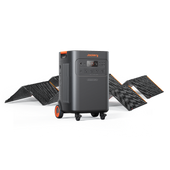












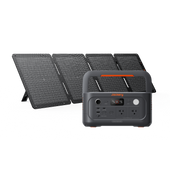



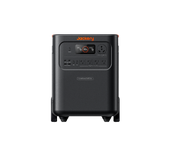
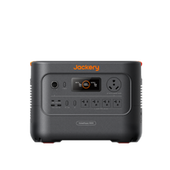






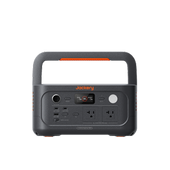





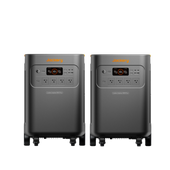
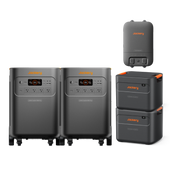





![[Add - on] Jackery Manual Transfer Switch for Explorer 5000 Plus - Jackery](http://www.jackery.com/cdn/shop/files/add-on-jackery-manual-transfer-switch-for-explorer-5000-plus-9017324.png?v=1754016782&width=170)
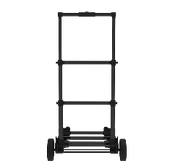
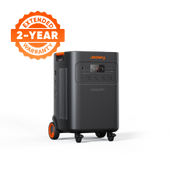
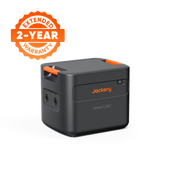
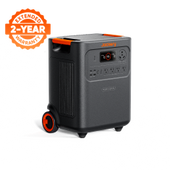
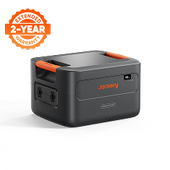
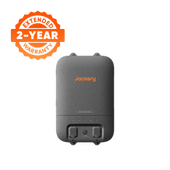



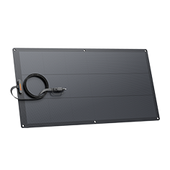
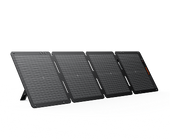





















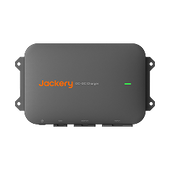




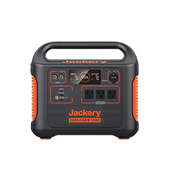






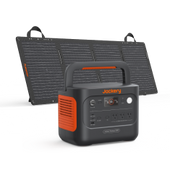
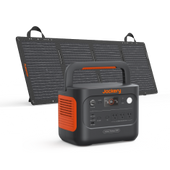






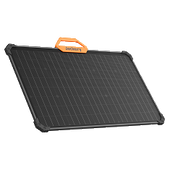



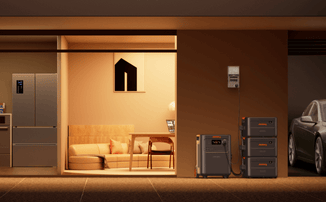












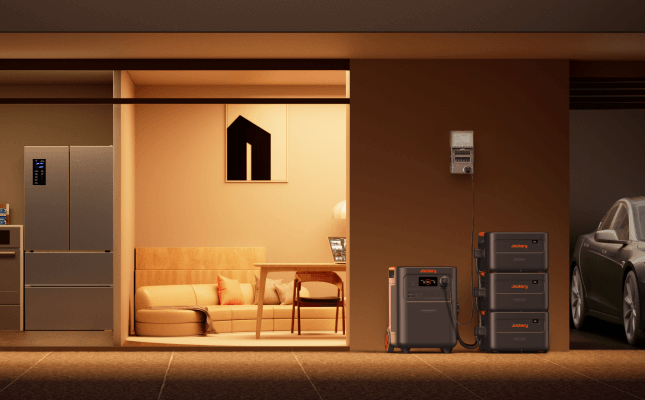




















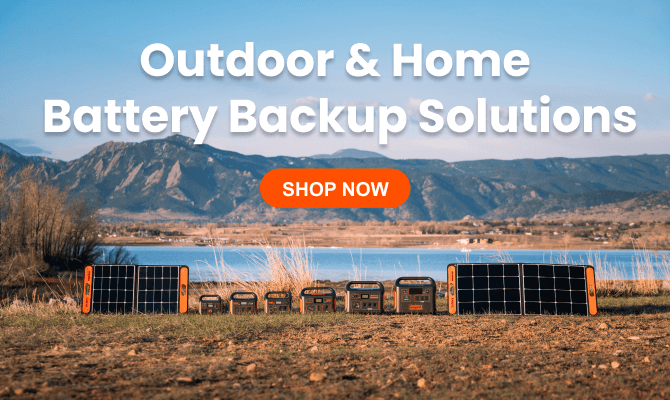



Leave a comment